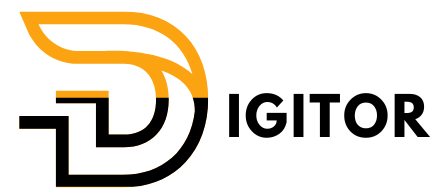Why Custom Brand Fonts Matter
Every successful brand has one thing in common—a unique identity. While logos, colors, and visuals play a role, custom brand fonts are often the unsung heroes of branding.
A custom font is a typeface created specifically for your business, ensuring your brand’s communication feels original and instantly recognizable. It becomes a signature style, just like your logo or brand colors.
Think about global brands like:
-
Coca-Cola – iconic script font recognized worldwide.
-
Netflix – introduced its own typeface “Netflix Sans” for consistency.
-
Apple – uses the custom “San Francisco” font for its clean, modern appeal.
This shows the power of typography in shaping customer perception.
Benefits of Custom Brand Fonts
1. Unique Identity
Using custom brand fonts prevents your business from blending in with competitors who rely on standard fonts like Arial or Helvetica.
2. Consistency Across Platforms
From websites and apps to marketing materials and product packaging, a custom font ensures consistent brand messaging everywhere.
3. Enhanced Brand Recognition
Just as colors or logos trigger recognition, fonts also make your brand memorable. Over time, customers will associate your typeface with your business values.
4. Professional Edge
Investing in typography shows commitment to quality and professionalism, strengthening client trust.
How Custom Brand Fonts Influence Brand Perception
-
Luxury Brands (e.g., fashion labels) use elegant custom fonts to convey exclusivity.
-
Tech Companies use clean, modern fonts to highlight innovation and simplicity.
-
Creative Brands often use bold, playful typefaces to stand out and attract attention.
In each case, custom brand fonts become part of the storytelling process.
Custom Brand Fonts vs Standard Fonts
| Feature | Standard Fonts | Custom Brand Fonts |
|---|---|---|
| Uniqueness | Common, widely used | Exclusive to your brand |
| Cost | Usually free/low-cost | Investment required |
| Recognition | Hard to differentiate | High recall value |
| Flexibility | Limited personalization | Fully customizable |
For businesses aiming for long-term brand value, custom typography is a worthy investment.
How to Choose or Create Custom Brand Fonts
Step 1: Define Brand Personality
Your font should reflect your business tone—formal, modern, playful, or bold.
Step 2: Work with Experts
Partner with a branding or web design agency that specializes in typography. At Digitor, we help businesses create fonts that align with their digital strategy.
Step 3: Test Across Mediums
Ensure your font looks professional on both print materials and digital screens.
Step 4: Pair Wisely
Even with a custom font, pairing it with a complementary typeface enhances balance in design.
For high-quality Indian-designed fonts, explore Indian Type Foundry, a leading platform for unique typefaces.

Custom Brand Fonts in Digital Branding
In today’s digital-first world, fonts play a critical role in:
-
Website Design – Enhancing user experience with readability and style.
-
UI/UX Design – Creating intuitive, visually appealing interfaces.
-
Social Media Branding – Ensuring consistent typography across campaigns.
-
Mobile Apps – Improving clarity while maintaining brand personality.
At Digitor, we understand how powerful typography can be. That’s why we integrate brand fonts into our design solutions for businesses that want to stand out. Contact us today to craft a distinct visual identity.
Final Thoughts
Your brand deserves more than generic fonts. With brand fonts, you gain a powerful tool for storytelling, recognition, and long-term brand value.
Whether you’re a startup aiming to stand out or an established business looking to refresh your image, investing in typography is a smart move.
Let Digitor help you design a custom digital identity that includes a font as unique as your brand. Reach out now to get started.
Explore more related articles to deepen your understanding
Best Fonts for Branding: Create a Lasting Visual Identity
SEO Content Writing: A Complete Guide for BeginnersDoes Google use Cloudflare
Content Writing Basics: A Beginner’s Guide to Effective Writing







